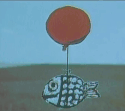|
FreudianSlippers posted:"Another genre I have no respect for is the biopic. They are just big excuses for actors to win Oscars. It’s a corrupted cinema. [...] I like Selma quite a lot for taking this approach.
|
|
|
|

|
| # ? May 14, 2024 13:18 |
|
RenegadeStyle1 posted:Red Tails anyone ????? There go those red tails. I sure hope we get to fly with them again! Also, P-40s and mustangs blowing up destroyers with .50 cals
|
|
|
|
FreudianSlippers posted:"Another genre I have no respect for is the biopic. They are just big excuses for actors to win Oscars. It’s a corrupted cinema. [...] Kinda why I thought the second Steve Jobs movie (the one starring Fassbender) was p decent. It takes some factual liberties, but the movie's really more about painting a portrait of how complicated a dude Jobs was and likewise his interpersonal relationships.
|
|
|
hogmartin posted:As long as it's not an egregious departure from the truth, I'm OK with a biopic taking some liberties to make a compelling 2 hour story. Think about it this way, someone who's never heard Turing's name goes to see The Imitation Game or catches it on Netflix. Even if they aren't compelled to go learn more about him, at least now they have a rough idea of who he was and what he did, and how he was repaid for it. I can't say that's a bad outcome. That's actually the main issue I had with the movie. I don't care that it wasn't factually, thematically, or character faithful. It was just a lovely movie in and of itself, another Hollywood cash-in where they have the marketing budget and the connections and the star power to obviate the need to make a movie that serves any purpose whatsoever. Even ridiculous Kung fu movies serve to entertain, whereas movies of this ilk serve only as a collection point around which money pools. The cards against humanity Thanksgiving hole is a pretty good way of thinking about it. The characters weren't even internally consistent, the movie was a shambles. It didn't even stay faithful to the skewed standards it set up for itself as a sloppy cash cow, let alone what the chosen topic subject would have required in a perfect world. But ignore me, this is basically my follow-up to getting conned into watching the avengers a couple years ago -- just a reminder that Hollywood is terrible and that the internet is always wrong Sulla Faex has a new favorite as of 10:30 on Dec 18, 2016 |
|
|
|
|
BravestOfTheLamps posted:Mr. Turner I was laughing all the way through this. I mean I know its supposed to be serious and all the rest of it but nothing had any emotional impact, other than laughter. System Metternich posted:(Does that count as a good biopic too? I only remember the music and the gorgeous costumes) Oh even if it counts as a good biopic it sure as the nine hells doesn't count as good cinema. I worked an event where they were showing it and I was very glad I got to get my phone out and have a read of a book whilst it was on. It's just never-ending. Josef bugman has a new favorite as of 10:51 on Dec 18, 2016 |
|
|
|
Jesus Christ Superstar
|
|
|
|
I really liked Walk The Line and it got me into Johnny Cash.
|
|
|
|
|
Walk Hard - The Dewey Cox Story is the most accurate and good biopic in the history of biopics and it taught me that accidentally cutting someone is half is easier than you think.
|
|
|
|
Government Handjob posted:Walk Hard - The Dewey Cox Story is the most accurate and good biopic in the history of biopics and it taught me that accidentally cutting someone is half is easier than you think. wrong kid died, though
|
|
|
|
Should have spent more time playing catch with him instead of training his body and mind to murder him in a machete fight. Also you owe it to yourself to watch the unrated version where Dewey punches out Patrick Duffy and has yet another wife.
|
|
|
|
Government Handjob posted:Walk Hard - The Dewey Cox Story is the most accurate and good biopic in the history of biopics and it taught me that accidentally cutting someone is half is easier than you think. Couldn't agree more.
|
|
|
|
Since this is CD now, I want to say I didn't finish The Imitation Game. I knew just enough of the IRL Turing story to know how wrong the movie was. It did inspire me to go do some reading, though, so in the end it did some good. Man, Alan Turing got a raw deal.
|
|
|
|
"I wonder if your songs will still be poo poo when I'm sixty-four." "THAT'S A GREAT SONG!" (What were the scenes where he flips out and rips the sinks out bathroom walls a reference to? I feel like they're alluding to something specific but I don't know what it would be off the top of my head.)
|
|
|
|
Wheat Loaf posted:"I wonder if your songs will still be poo poo when I'm sixty-four." Walk the line. Johnny cash wrecks a sink when he goes on a rage
|
|
|
|
https://www.youtube.com/watch?v=Wdfo-b6a6Ng I loving love how the script continually plays up how loving dumb it is
|
|
|
|
Powaqoatse posted:https://www.youtube.com/watch?v=Wdfo-b6a6Ng I can't even watch Walk the Line anymore because I just bust out laughing every time something dramatic happens because it reminds me of Walk Hard.
|
|
|
|
Admiral Joeslop posted:I really liked Walk The Line and it got me into Johnny Cash. I dislike it because it made my wife hate Johnny Cash after learning that he was a wifebeater. I hope we never watch a John Lennon biopic together. Never meet your heroes.
|
|
|
|
Arcsquad12 posted:There go those red tails. I sure hope we get to fly with them again! Also, P-40s and mustangs blowing up destroyers with .50 cals They're pretty easy to take down once you get their shield generators offline.
|
|
|
|
I have mentioned before that I am an admirer of explorers, even the dreadfully unsuccessful ones who ended up having to eat each other. One little-known expedition that I've only recently become aware of was the Grindell expedition to Tiburón Island in the Gulf of California in 1905. The expedition leader was Thomas Grindell, a teacher and principal of several schools and former member of Theodore Roosevelt's Rough Riders. He led the party to prospect for gold, but when they reached the strait that they hoped to ford to reach the island and found it impassable, they split apart and wandered into the desert, where most died of either starvation or dehydration. The survivor was Jack Hoffman, who made the most titanic feat of the expedition. On his own, he thought he would walk 50 miles down the Mexican coast to what he hoped would be the nearest settlement. However, he had a fault map, and the settlement he was aiming for was actually 150 miles away, and he ended up trekking through the desert, the swamps and the mountains by himself for four months until he reached civilisation. One thing I think is very interesting about this story is how it really underlines how remote and unknown large parts of the world still were (and still are, in places) to the more developed world even at the start of the last century, not to mention how much we take for granted our ability to travel and communicate with such speed and efficiency as we now enjoy. We associate exploration in the early 20th century with polar discovery, but here was a mission that came to grief in pursuit of a destination which was really in the USA's backyard.
|
|
|
|
Götz von Berlichingen: “Götz of the Iron Hand” von Berlichingen was a man who loved to fight. He was involved in 15 different feuds, raided several towns and fought as a mercenary in many wars. That of itself isn't that remarkable, what is remarkable is that he did it with just one hand. In 1504 he fought for Albert IV, Duke of Bavaria in city of Landshut when a cannon shot his right arm of. For others (like Jaime Lannister) this would be a disaster but von Berlichingen made a prosthetic arm of metal and kept on fighting. He later made a more advanced arm that he could even use to write with. He died on 23 July 1562 in Hornberg Castle. During his long life, Berlichingen had married twice and left three daughters and seven sons to carry on his family name.  Translation of the text: "He can lick my rear end", which is a quote from the play Goethe wrote about him.
|
|
|
|
|
According to the author, Kentaro Miura, Guts from Berserk wasn't inspired by Götz. 
|
|
|
learnincurve posted:Pale and dainty is a fairly modern thing so far as standards of beauty go in the UK. Even portraits of regency women show them as not exactly thin - I would take a wild punt and guess it's those pesky judgemental Victorians saying that gluttony is a sin which changed things. nah. it's about status. what's attractive is dictated by how the rich look. for centuries fat was attractive because only the rich could be fat. now, when it takes a certain socioeconomic status to eat well, afford a gym membership and have the leisure to use it, fitness is attractive. 'tan' went from being deeply unattractive (because it meant you worked in the fields) to being attractive (because you could afford/had the leisure time to go to the beach/a tanning salon) for the same reason.
|
|
|
|
|
Say Nothing posted:According to the author, Kentaro Miura, Guts from Berserk wasn't inspired by Götz. Boo! Boo this man!
|
|
|
|
Wheat Loaf posted:One thing I think is very interesting about this story is how it really underlines how remote and unknown large parts of the world still were (and still are, in places) to the more developed world even at the start of the last century, not to mention how much we take for granted our ability to travel and communicate with such speed and efficiency as we now enjoy. We associate exploration in the early 20th century with polar discovery, but here was a mission that came to grief in pursuit of a destination which was really in the USA's backyard. I can't remember where I read this fact, but it really stuck with me - the Marias Pass (the most northerly crossing of the Continental Divide within the USA) was discovered and mapped in 1889. Fair enough. But coming from the little ol' UK the idea that a major and important geographical feature which now forms a crucial part of a developed nation's transport network could be entirely unknown to society prior to the late 19th century is a little mind-boggling. In the UK every square inch of land and every blade of grass has been picked over and documented several times over since the Romans pitched up. If you want to know how many oxen were in a Wiltshire village in 1086 there's a book that will tell you. The geography of the nation has been known for millenia and by the 1850s it had been surveyed, recorded and mapped in excruciatingly scientific detail by the Ordnance Survey. And thirty years later people were still filling in blanks in our knowledge of American geography. Of course it makes absolute sense, given the relative size and history of the places. But I think it's one of those moment which really drove home to me how North American geography (and history) is on a completely different scale - the geography is much broader and the history is, in some ways, much narrower. It's a bit like those stories of the Indian government undertaking surveys in the early 1950s following independence. In the places like the Terai and the Hindukush officials came across remote villages where the way of life hadn't changed in centuries. When asked how they felt about their new nation, a good proportion of these people didn't realise the British had left and some never knew the British had arrived in the first place. Almost certainly apocryphal but it has a nub of plausibility.
|
|
|
|
the Roman deity of conjugal fuckin' was named Mutunus Tutunus
|
|
|
|
BalloonFish posted:I can't remember where I read this fact, but it really stuck with me - the Marias Pass (the most northerly crossing of the Continental Divide within the USA) was discovered and mapped in 1889. Fair enough. But coming from the little ol' UK the idea that a major and important geographical feature which now forms a crucial part of a developed nation's transport network could be entirely unknown to society prior to the late 19th century is a little mind-boggling. In the UK every square inch of land and every blade of grass has been picked over and documented several times over since the Romans pitched up. If you want to know how many oxen were in a Wiltshire village in 1086 there's a book that will tell you. The geography of the nation has been known for millenia and by the 1850s it had been surveyed, recorded and mapped in excruciatingly scientific detail by the Ordnance Survey. And thirty years later people were still filling in blanks in our knowledge of American geography. There's a really solid book called The Men Who United the States that was written by a British author that is a pretty good look at a lot of the process of discovering just exactly what was in America. One of my favorite bits in it is when it explains that during the Mormon Exodus they came to a decision where they had to choose between two passes that were both fairly untraveled and remote, they decided to choose the southern pass because it was more well known and had less snow on it at the time. That pass is what would bring them into what is now Utah, but had they chosen differently they would have walked into what is now Yellowstone National Park.
|
|
|
|
In the Middle Ages and Renaissance, cloth was woven by hand. As such it was expensive, and naturally when you went to a tailor, you expected to get your money's worth, plus any leftover or scrap cloth. Tailors liked keeping big scrap piles, where they might be able to squeeze just enough big pieces out of a project to use later on. The tailors had names for their scrap pile boxes and hoards, a popular one being Eye. So when a client was given a handful of little scraps and asked for bigger ones, the tailor might tell him to look for it in his Eye, the implication being there was nothing left. Another common one, though, was Hell, and tailors often told their clients they could search for the leftover in Hell. We call our scrap box Hell, which invariably delights our nieces and nephews.
|
|
|
|
El Estrago Bonito posted:There's a really solid book called The Men Who United the States that was written by a British author that is a pretty good look at a lot of the process of discovering just exactly what was in America. One of my favorite bits in it is when it explains that during the Mormon Exodus they came to a decision where they had to choose between two passes that were both fairly untraveled and remote, they decided to choose the southern pass because it was more well known and had less snow on it at the time. That pass is what would bring them into what is now Utah, but had they chosen differently they would have walked into what is now Yellowstone National Park. I saw a neat documentary last night about John Rae, a British/Canadian explorer who mapped the last part of the northwest passage in the mid-1800s. He was pretty distinctive at the time for relying on a lot of skills and knowledge he'd learnt from the native First Nations people to do his exploring, and his reputation was forever tarred when he was asked to go and find out what happened to John Franklin's expedition to find the northwest passage. When his report finally came through and relayed the information that the expedition had all died after resorting to cannibalism to survive, and he told the British Navy that he'd learnt this information from local Inuit, everybody back in England pretty much hated him for it, especially Franklin's widow. This is why in the UK Franklin's failed expedition is kinda bizarrely more well remembered than the successful expedition of cool explorer dude John Rae, who only lost a single man in his three expeditions to map the northern parts of Canada and never ate anybody.
|
|
|
|
Red Bones posted:I saw a neat documentary last night about John Rae, a British/Canadian explorer who mapped the last part of the northwest passage in the mid-1800s. He was pretty distinctive at the time for relying on a lot of skills and knowledge he'd learnt from the native First Nations people to do his exploring, and his reputation was forever tarred when he was asked to go and find out what happened to John Franklin's expedition to find the northwest passage. When his report finally came through and relayed the information that the expedition had all died after resorting to cannibalism to survive, and he told the British Navy that he'd learnt this information from local Inuit, everybody back in England pretty much hated him for it, especially Franklin's widow. This is why in the UK Franklin's failed expedition is kinda bizarrely more well remembered than the successful expedition of cool explorer dude John Rae, who only lost a single man in his three expeditions to map the northern parts of Canada and never ate anybody. Was it specifically the cannibalism part of his report? Why would they hate a dude just for telling them what happened? Did the public think he was lying? If it was that big of a stain on England's image or w/e couldn't the navy have just censored the more lurid details?
|
|
|
|
Aesop Poprock posted:Was it specifically the cannibalism part of his report? Why would they hate a dude just for telling them what happened? Did the public think he was lying? If it was that big of a stain on England's image or w/e couldn't the navy have just censored the more lurid details? I think it was the suggestion that the upstanding members of the Royal Navy ended up resorting to cannibalism that the navy and the public really didn't like, and the fact that he got this information from native people was used to discredit him. Rae never found the Franklin expedition, but multiple groups of Inuit told him that they'd seen a bunch of white people starve to death and had resorted to cannibalism, and the Inuit had also taken a bunch of things from the ship, which Rae took as pretty solid evidence of what had happened. The Navy officially accepted the findings, and several members of the public and the navy, most prominently Franklin's widow and Charles Dickens, refused to accept the report and started a big public poo poo-talking campaign against Rae after his letter reporting on his findings was released to the press and was published. Chalk it up to a mixture of refusing to accept that your beloved navy would end up eating each other and the ingrained racism that Rae heard this from a bunch of 'natives' and we were supposed to believe them (even though Rae had purchased a bunch of stuff that was definitely from the ship from the Natives and had sent it to London as evidence supporting his report). I think it was a real shooting the messenger situation, honestly. Rae was just doing his job and everyone hated him for reporting the bad news. The other, later expeditions involved in trying to find the Franklin expedition got a lot more positive press and several knighthoods amongst the members; Rae just got a financial reward. Franklin's widow was so adamant that what Rae had reported wasn't true that she financed another expedition after the Navy's second one (after Rae's) corroborated his findings.
|
|
|
|
One of Franklin's ships, the flagship HMS Erebus, had previously been taken to the Antarctic by Sir James Clark Ross (for whom the Ross Ice Shelf is named) where a volcano was named after the ship in 1841. Just short of 140 years later in 1979, a sightseeing aeroplane crashed into the side of Mt. Erebus due to a complete whiteout of the pilots' visibility, resulting in the deaths of all aboard. Wreckage is still visible on the hillside today.
|
|
|
|
Red Bones posted:I think it was the suggestion that the upstanding members of the Royal Navy ended up resorting to cannibalism that the navy and the public really didn't like, and the fact that he got this information from native people was used to discredit him. Rae never found the Franklin expedition, but multiple groups of Inuit told him that they'd seen a bunch of white people starve to death and had resorted to cannibalism, and the Inuit had also taken a bunch of things from the ship, which Rae took as pretty solid evidence of what had happened. That's pretty much it. Plus if Rae's report (and the Inuit testimony it was based on) was true it meant that before resorting to cannibalism a Navy expedition had either broken down as a unit or outright mutinied and split up into small groups each trying to reach safety in a different way. It wasn't what the Admiralty wanted to believe and it wasn't what the public wanted to hear. The thing is that the recent discoveries of the wrecks of Erebus and Terror prove that the Inuit (and Rae) were, unsurprisingly, telling the truth all along. The wrecks are exactly where the Inuit have been saying they were for the past 150 years. El Estrago Bonito posted:There's a really solid book called The Men Who United the States that was written by a British author that is a pretty good look at a lot of the process of discovering just exactly what was in America. That sounds right up my street. Thanks for the recommendation!
|
|
|
Red Bones posted:I think it was the suggestion that the upstanding members of the Royal Navy ended up resorting to cannibalism that the navy and the public really didn't like, and the fact that he got this information from native people was used to discredit him. In 1884 killing people and eating them in desperate situations was actually banned. On May 19th 1884 the Mignonette left Southampton, on it was Tom Dudley, Edwin Stephens, Edmund Brooks and Richard Parker. On july 5th the yacht sank and the crew abandoned it with the flimsy lifeboat. On july 13th they were out of food and water and were drinking their own urine.On july 20th Parker became ill after drinking seawater, he then fell into coma. On july 24th they decided that one of them had to die to save the others and they all thought that Parker (still in a coma) should be the one because he had no family would probably die anyway. The next morning they killed and ate him. On september 6th they were picked up by the german barque Montezuma.They were then detained and sentenced to death, which was later commuted to six months in prison.
|
|
|
|
|
It sounds pretty similar to the whole Benghazi scandal, which is only a scandal because of politicians with an agenda and a public baying for blood who refuse to accept objective evidence.
|
|
|
|
Alhazred posted:In 1884 killing people and eating them in desperate situations was actually banned. On May 19th 1884 the Mignonette left Southampton, on it was Tom Dudley, Edwin Stephens, Edmund Brooks and Richard Parker. On july 5th the yacht sank and the crew abandoned it with the flimsy lifeboat. On july 13th they were out of food and water and were drinking their own urine.On july 20th Parker became ill after drinking seawater, he then fell into coma. On july 24th they decided that one of them had to die to save the others and they all thought that Parker (still in a coma) should be the one because he had no family would probably die anyway. The next morning they killed and ate him. On september 6th they were picked up by the german barque Montezuma.They were then detained and sentenced to death, which was later commuted to six months in prison. Parker was an inexperienced seaman, but his elder brother had spent many years at sea, and when the crew of the Mignonette returned to England, he met with Dudley in public and said he understood why they killed and ate his brother and he didn't hold it against them, because it was just what you had to do in that situation. I think the main legal controversy was that they killed Parker so they could eat him rather than waiting for him to die and consuming the cadaver, because the key principle discussed in the case was whether necessity is a defence to murder. (R v Dudley and Stephens is one of the few lectures I remember from first-year entry-level criminal law, because the lecturer barked the whole thing like a retired army colonel and then acted it out.)
|
|
|
Wheat Loaf posted:Parker was an inexperienced seaman, but his elder brother had spent many years at sea, and when the crew of the Mignonette returned to England, he met with Dudley in public and said he understood why they killed and ate his brother and he didn't hold it against them, because it was just what you had to do in that situation. I think the main legal controversy was that they killed Parker so they could eat him rather than waiting for him to die and consuming the cadaver, because the key principle discussed in the case was whether necessity is a defence to murder. Yeah, one of the arguments was that killing and eating people because they were weak and alone wasn't a precedent they were willing to set: Lord Coleridge posted:"It is not needful to point out the awful danger of admitting the principle which has been contended for. Who is to be the judge of this sort of necessity? By what measure is the comparative value of lives to be measured? Is it to be strength, or intellect or what? It is plain that the principle leaves to him who is to profit by it to determine the necessity which will justify him in deliberately taking another's life to save his own. In this case the weakest, the youngest, the most unresisting, was chosen. Was it more necessary to kill him than one of the grown men? The answer must be 'No'”
|
|
|
|
|
The three major expedition leaders who came before Rae were all shades of racist against everyone who wasn't English. The first guy used his mapping trip to write a horror story about the inuit and the Dene massacring each other and passing it off as historically accurate accounts. Franklin left his french guides and native translators to starve to death on their first expedition. Rae was basically the only one who treated the locals with any manner of respect, and he got poo poo on for it.
|
|
|
Arcsquad12 posted:The three major expedition leaders who came before Rae were all shades of racist against everyone who wasn't English. Not exactly shocking to learn.
|
|
|
|
|
Arcsquad12 posted:Rae was basically the only one who treated the locals with any manner of respect, and he got poo poo on for it. And yet he was actually pretty drat good at the job. Funny, that.
|
|
|
|

|
| # ? May 14, 2024 13:18 |
|
Lady Franklin wasn't exactly upper-upper class, but was in Society. She was pretty educated for the times, too. Dying that way was just something he wouldn't have done (Franklin probably wasn't cannibalized, though his remains have not been found. He died pretty early after they became stuck in the ice.). He was a hero dammit, and surely there must be proof of it. Decades after Rae, Frederick Schwatka also made heavy use of Inuit accounts in adding details. Kinda scary, though, that when Rae went looking and mapped a good bit of northwest Canada, some of Franklin's men might have still been alive. Particularly Crozier.
|
|
|


































